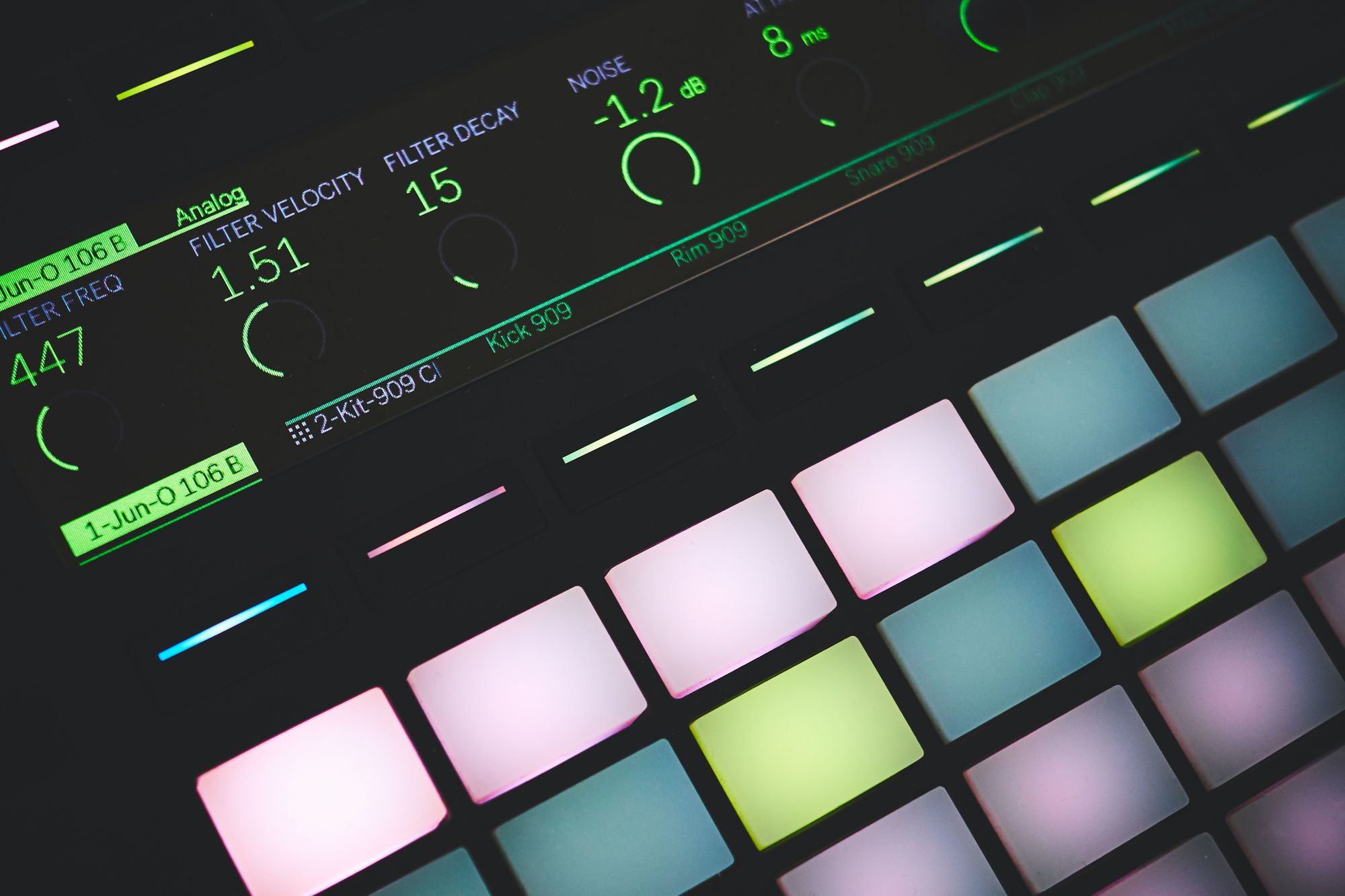How a Soundfly Mentor Helped Me Make (Much) Better Music

When I first reached out to Soundfly, I was struggling to describe what I wanted in mentorship.
I had a goal: I wanted to build a portfolio of creative work by the end of the year.
I had experience: 10 years developing music software, lessons on multiple musical instruments, and a lot of exploration with electronic sound.
And I had some loose thoughts about style and presentation: some form of experimental music, maybe something that I could later use in an art installation or interactive exhibit.
What Jeremy responded with help me solidify this into an action plan:
[What we offer is] a chance to focus on one thing, one element of growth, at a time, in a model that rewards holding oneself accountable to that one thing.
Perfect. I could work with that.
I decided to hone in on a foundational first step: production of a contemporary piece of electronic music in Ableton Live. This would ensure I have the fundamentals locked-in, know the rules, and then either extend or break them later.
I was introduced to Andrea De Carlo, we chatted briefly, and then we were set up for the session.
Week 01-02: Compositions and Structure
My first assignment, even before my first session, was to listen actively to a piece of reference music and construct as many elements as I could. This was eye-opening for me as I quickly discovered my awkwardness with the tools.
I put together this:
I added placeholder samples for rhythm and texture. I used broad strokes across the piano roll and scale filters to create a computer-aided melody. I selected simple waveforms on synthesizers.
The overall composition was in-line with what I wanted to achieve, but there was a missing harmony layer. I wrestled with a few strategies from musical to experimental: simple triads, randomized chords and take-lanes, voicing and inversions.
We had our first follow-up meeting and I still wasn't happy with my work. I asked for another week, but he told me to write the parts quickly and then mix them for next week. What ultimately worked for me was extending my bass line first, then filling my harmony out from there.
Process Tips:
- Each section has a narrative, explore interplay between sections.
- Follow your interest, work until satisfaction, then move on.
- If the composition isn't working, try alternate instrumentation.
Week 03 Summary: A Mix
This was a review of my composition and mix. Having no real exposure to mixing beyond the basics, I was concerned this might be a significant shortcoming. Surprisingly, this came out alright.
Andrea encouraged me to explore compression, applied lightly, to both make room for the drums and glue various elements together. Beyond that, he suggested this piece might benefit from further embellishment, automation, and modulation.
Process Tips:
When working with experimental techniques, there are a few options:
- Study rules and techniques other composers used.
- Pick an instrument or other source material and dedicate time to exploration.
- Just practice a lot with your imagined direction.
Week 04 Summary: Final Review
This was my last weekly submission, taking everything I learned in the last 4 weeks and applying it to a new composition.
Compositionally and sonically, this was in-line with my goals.
We utilized the 45-minute session to look at applying EQ and compression to the mix. I've been avoiding EQ so as to not distort my sounds. However, walking through this with Andrea quickly demonstrated to me how this can add clarity to my kick drum as well as clearing space from the other channels.
Process tips:
- If deadlines help, seek workshops and contests.
- Enjoy making small parts, then move on to the bigger composition.
- Choose one element to explore (e.g. sound design) and let other aspects be just good-enough.
Conclusion
In the end, my biggest takeaways were more songwriting and production focused:
- Actively listen to music (30+ minute sessions, analyze songs, take notes)
- Compose across multiple parts: bass, harmony, and melody
- Expand ideas with song structure
- Mix with gain, EQ, and compression
While these may seem straightforward and relatively simple topics, this was the webbing I needed to stitch together my disparate technical skills and become productive quickly. Staying within my genre and software choices allowed me to apply concepts directly to my work. As creative blocks appeared, my mentor helped me navigate challenges and quickly overcome obstacles.
Without a mentor, there were moments I might not have had the patience, persistence, or process to push through. Andrea helped me unlock this and get to a point where I'm happy with my work. So much so that when it came to the final composition project, I was able to move through multiple ideas before landing on one.
